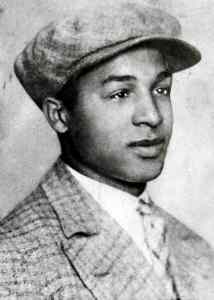Hilarius Gilges on:
[Wikipedia]
[Google]
[Amazon]
 Hilarius Gilges (28 April 1909 – 20 June 1933) was a German actor, dancer and communist political activist. He was murdered at the age of 24 by the Nazis.
Hilarius Gilges (28 April 1909 – 20 June 1933) was a German actor, dancer and communist political activist. He was murdered at the age of 24 by the Nazis.
 Hilarius Gilges (28 April 1909 – 20 June 1933) was a German actor, dancer and communist political activist. He was murdered at the age of 24 by the Nazis.
Hilarius Gilges (28 April 1909 – 20 June 1933) was a German actor, dancer and communist political activist. He was murdered at the age of 24 by the Nazis.
Life
Hilarius Gilges was one of the few black Germans born in the country before theFirst World War
World War I (28 July 1914 11 November 1918), often abbreviated as WWI, was List of wars and anthropogenic disasters by death toll, one of the deadliest global conflicts in history. Belligerents included much of Europe, the Russian Empire, ...
. His mother Maria Stüttgen was a textile worker in Düsseldorf
Düsseldorf ( , , ; often in English sources; Low Franconian and Ripuarian: ''Düsseldörp'' ; archaic nl, Dusseldorp ) is the capital city of North Rhine-Westphalia, the most populous state of Germany. It is the second-largest city in ...
; the origin of his biological father is not known for certain. Maria married Franz Peter Gilges in 1915, giving the boy the family name Gilges.
Gilges grew up in the working class milieu of Düsseldorf and joined German Communist Youth in about 1925 or 1926. He became an amateur actor with the communist agitprop theatre group "Nordwest ran" directed by Wolfgang Langhoff. His radical politics led in 1931 to his arrest and sentencing to one year in prison. After his release in 1932 he continued as an active communist agitator.
Gilges married Katharina Hubertine Laatsch (born Vogels) and fathered two children.
Death
In early 1933, after the Nazis seized power, he attempted to go into hiding, but his visibility due to his skin color made this difficult. In June 1933, he was arrested in his apartment in the city's ''Altstadt'' district (Old Town) district of Düsseldorf. His body was found under a bridge the next day. The perpetrators are believed to have been six members of theGestapo
The (), abbreviated Gestapo (; ), was the official secret police of Nazi Germany and in German-occupied Europe.
The force was created by Hermann Göring in 1933 by combining the various political police agencies of Prussia into one orga ...
and SS, but even after the end of Nazi rule, were not tried in court.
His widow and two children survived the Nazi period, probably because they were helped by neighbors in the ''Altstadt''. In 1949 they were given a lump sum compensation of 12,000 Deutschmark as restitution.
Commemorations
On 23 December 2003 the city of Düsseldorf named a plaza after Hilarius Gilges, in the vicinity of the Düsseldorf Academy of Arts. In 1988 a plaque had been already placed at the approximate site of the murder. The plaque was commissioned by the Düsseldorf city museum and designed by the local artist Hannelore Köhler. It shows a relief profile of Gilges.References
*Clarence Lusane
Clarence Lusane (born 1953) is an American author, activist, lecturer and freelance journalist. His most recent major work is his book '' The Black History of the White House''.
Background
Clarence Lusane received his Ph.D. in political science ...
: ''The Historical Experiences of Afro-Germans, European Blacks, Africans, and African Americans in the Nazi Era''. Routledge, London 2002, ,
*Lothar Pützstück: „AfrikanerInnen in Deutschland und schwarze Deutsche – Geschichte und Gegenwart. Beiträge zur gleichnamigen Konferenz vom 13.-15. Juni 2003 im NS-Dokumentationszentrum Köln“. In: Marianne Bechhhaus-Gerst, Reinhard Klein-Arendt (Hrsg.): ''Begegnungen. Geschichte und Gegenwart der afriknisch-europäischen Begegnung''. LIT Verlag, Münster 2004.
Notes
{{DEFAULTSORT:Gilges, Hilarius 1909 births 1933 deaths Actors from Düsseldorf People from the Rhine Province Tap dancers German male dancers German communists German anti-fascists 20th-century German dancers People murdered in Nazi Germany